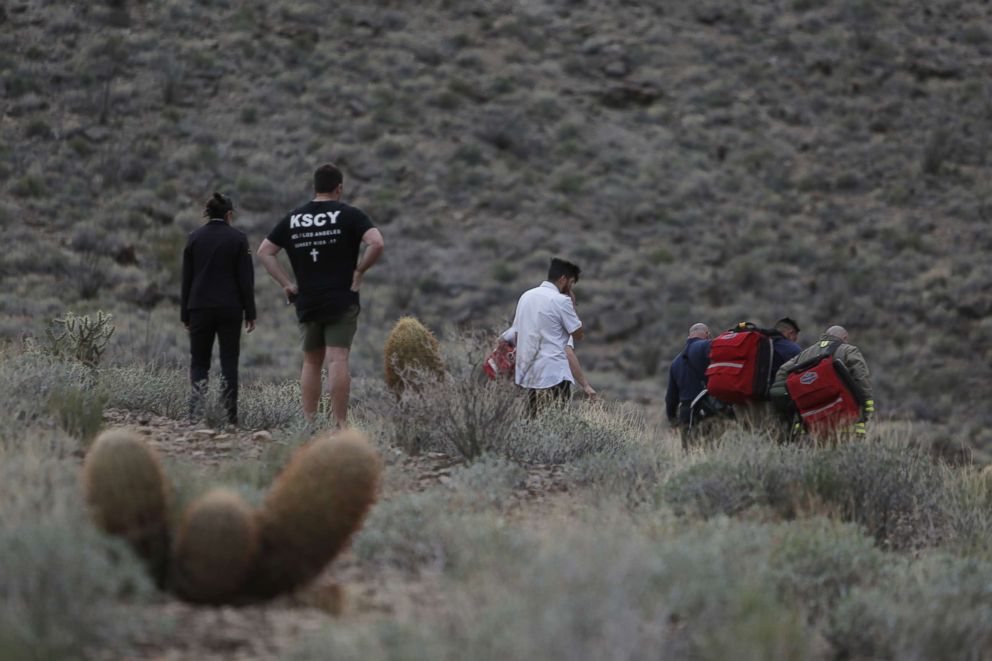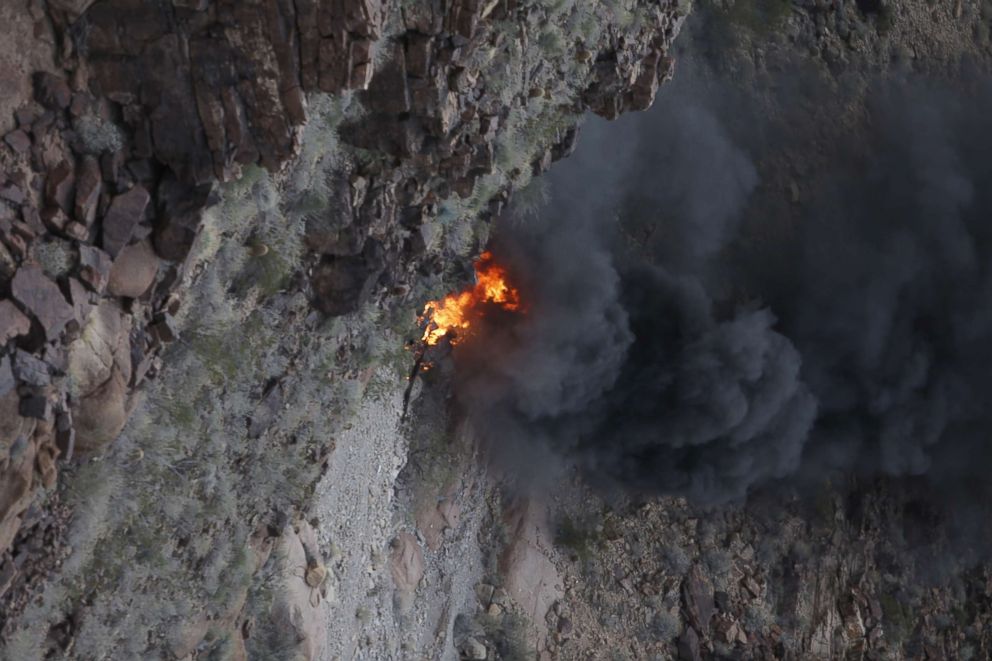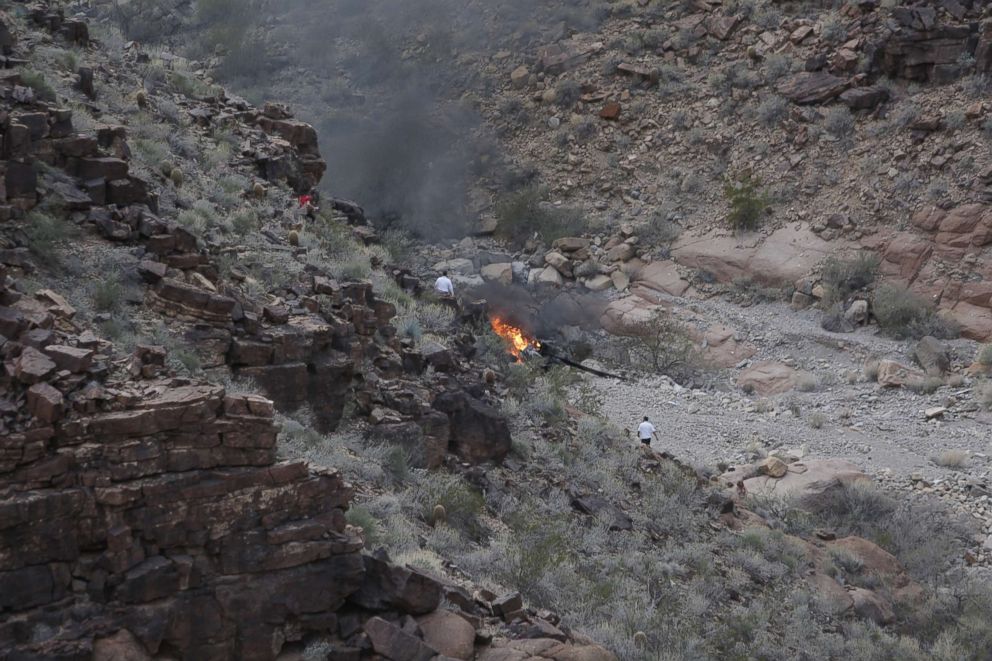Investigators looking 'very closely' to see if Grand Canyon chopper in fatal accident was equipped with 'crash-resistant fuel system'
Investigators are determining if crash chopper had crash-resistant fuel system.
— -- Federal investigators are "looking very closely" to determine if the Papillon Airways tour helicopter that crashed Sunday evening in the Grand Canyon killing three people and wounding four others had government-recommended equipment that prevents fuel leaks that can spark deadly fires in the event of an accident.
The National Transportation Safety Board (NTSB) held a press conference on Monday afternoon explaining that the agency is trying to figure out if the Airbus EC130 B4 chopper that crashed at around 5:30 p.m. on Sunday was equipped with a so-called "crash-resistant fuel system."
The NTSB had sent a Safety Recommendation Report in 2016 urging the Federal Aviation Administration (FAA) to retrofit Airbus helicopters with the safety equipment.
In his description of the wreckage, NTSB investigator Stephen Stein explained there was "evidence of a post-crash fire" in the Quartermaster section of the Grand Canyon where the helicopter went down.

Stein said that three NTSB investigators have been dispatched to the crash site since Sunday and plan to go through the aircraft's inspection records, the pilot's certificate and status of the engine.
He also said that everything from survivor and witness interviews to weather will be examined and included in a preliminary report in the coming days. A final report would be released after 18 months.
"We have reports of some wind," Stein said, but he cautioned that the reports of gusts would need to be corroborated with radar data calibrated at the time of the crash.
So far, the pilot, 42-year-old Scott Booth, and passengers, 29-year-old Ellie Milward, 32-year-old Jonathan Udall and 39-year-old Jennifer Barham, survived and were all airlifted to the University Medical Center in Las Vegas.

They remain in critical condition, according to Hualapai Nation Police Chief Francis Bradley.
The three fatalities in the helicopter crash were released by authorities as Jason Hill, 32, Stuart Hill, 30, and Becky Dobson, 27.
Going back to 1994, the NTSB has documented the value of crash-resistant fuel systems and even confirmed back in March 2016 that Airbus was "developing a retrofit kit" for its existing fleet of choppers.
The initial recommendation from March 2016 says the crash-resistant fuel system design is proven to "minimize the hazard of fuel fires to occupants following an otherwise survivable impact (crash landing), the fuel systems must incorporate design features of this section."
A retrofit kit of crash-resistant fuel systems was to be completed on the Airbus model EC130B4 helicopters by "early 2016," according to a 2017 NTSB Safety Recommendation Report where two documented crashes in 2015 included a "postcrash fire" that led to greater injuries and destruction.
The report documents the urgency to "prioritize approval" of the modifications was simply to "improve fuel system crashworthiness and urge that they be installed as soon as practicable."

On March 6, 2015, an EC130 B4 helicopter was being operated in St. Louis when it struck a parking lot structure.
The pilot, according to the report, "sustained fatal thermal injuries."
The report noted that "the accident was immediately survivable in the absence of a postcrash fire."
A similar situation occurred on July 3 of the same year when an Airbus AS350 B3e helicopter collided with a parked vehicle in Frisco, Colorado, and "was destroyed by impact forces and a postcrash fire," the report states.
The report says the pilot in that crash died from his injuries and the two flight nurses on board suffered "thermal injuries" from the wreckage.
In both crashes, the report concluded, "Neither the AS350 B3e nor the EC130 B4 helicopter was equipped with a crash-resistant fuel system, which if installed may have prevented or reduced the risk of thermal injuries."
ABC News' Erin Dooley contributed to this report.




